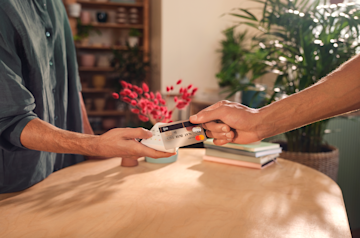
Our relationship with money is changing—we spoke to our customers to learn more
We asked 10,000 people to share how their financial lives have been impacted by the pandemic. What’s keeping us all up at night?
3 min read
COVID-19 has impacted the world more than any other event in recent memory. And as our lives change dramatically, it can sometimes feel like we’re left facing our finances alone. At N26, we want to help. To understand how we can make a difference, we decided to take a step back and find out what people across Europe and the US were most worried about in the wake of global pandemic.We asked 10,000 people to share how their financial lives have been impacted by the pandemic. What’s keeping us all up at night? Read on to find out what we learned below.Fittingly for a crisis which has sadly changed the lives of many around the globe, we’re most concerned about the impact the virus will have on the health of our loved ones. And unsurprisingly, this is closely followed by fears about our own health.Our personal finances came in third, with money worries taking the lead when it comes to changing our habits. In fact, a remarkable 73 percent of people admitted to adapting their financial priorities, with nearly two-thirds saying concerns about the economy being the reason for this. Alongside this, a third revealed that their own employment situation is the main driver behind making a change.With that being said, these changed priorities aren’t stopping most of us from building up our savings pot to provide a cushion in tough times. While you’d expect people to be dipping into savings to help cover costs, most of us are managing to do the opposite. Interestingly, 65 percent of the people we surveyed said they were putting aside more money than they were before the crisis—stashing away an extra €176.98 a month on average. It’s something we’re seeing with our own customers too, particularly in Spain, where we’ve seen an increase in the use of our Spaces. These are sub-accounts that allow you to drag and drop money over from a main account, allowing you to save towards a specific goal.So, where is all this extra money we’re able to save coming from? Well, It’s all because we’re being savvier about our discretionary spending—the money we have left over when we’ve paid for all the essentials.While it’s obvious that spending on holidays and days out have dropped off, something to note is how much we’re all cutting back across the board. Pre-pandemic, 39 percent of people would spend some of their discretionary income on fashion and shopping every month, but this has declined to just 10 percent in the post-Corona world. On the other hand, takeaways have seen a less drastic change, dropping from 25 percent of people ordering one take-out per month, to just 18 percent today.However, there’s one exception. With so much time to fill, it’s hardly surprising that people are actually spending more on Netflix, and other subscription services. And this has been reflected in our own data.While it’s too early to say whether people’s spending habits will revert back to normal when the crisis is over, it’s clear that we’re going to approach spending differently. Two-thirds of us plan to prioritize cards over cash in the future, showing that concerns about the role cash might play in spreading COVID-19 will have a lasting impact on the way we pay.So that’s the big picture—while we’re all worried, it’s clear that the vast majority of us are finding ways to adapt our financial habits to this new reality. But we want to know more. We want to hear how it’s impacting each of you personally, and the steps you’re taking to stay on top of your money.If you have a story to tell—or a great tip to share on how you’re making your money go further—let us know on Twitter. We’ll share our favorites with our community.
We’ve changed our financial priorities
We’ve put aside extra for a rainy day
We’ve cut back on non-essentials
What does the future look like?
Find similar stories
BY N26Love your bank
Related Post
These might also interest youLIFESTYLECould AI help you manage your money?86% of people are open to using AI for financial planning, but is it safe? Learn how AI is already transforming money management, and discover the pros and cons.
4 min read
LIFESTYLEUnderstanding tariffsFrom higher grocery bills, pricier electronics, and stock market swings, tariffs can impact your wallet and your investments.
5 min read
LIFESTYLEDe-hyping the no-spend challengeThis extreme challenge promises to transform your finances, but is it really the game-changer it claims to be?
4 min read


